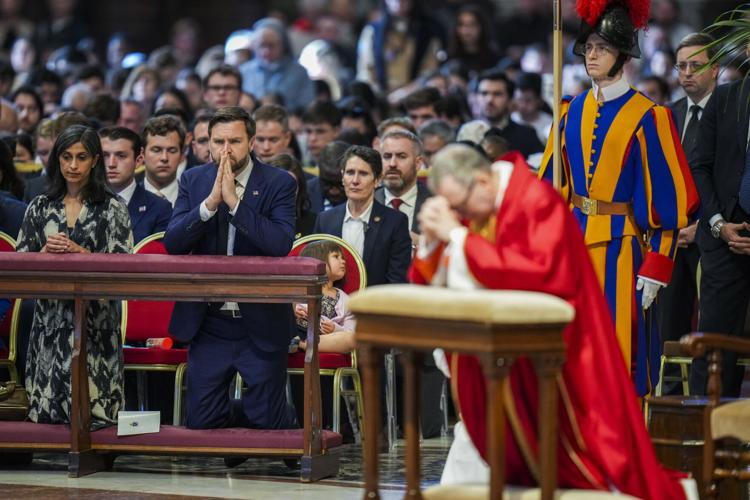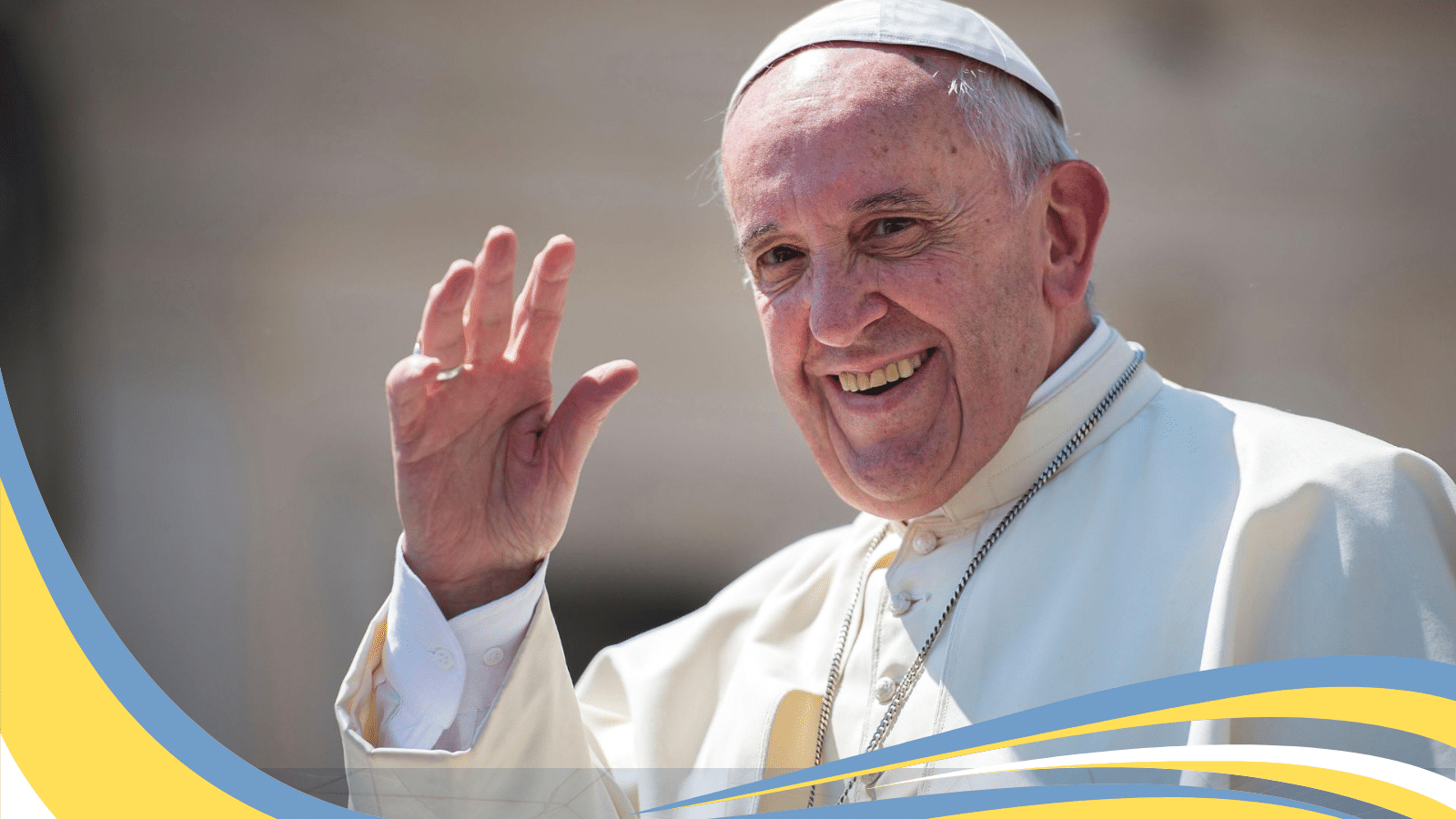Pope Francis: Facts & Insights You Need To Know
Did Pope Francis, the spiritual leader of the Catholic Church, have a wife and daughter? The answer, in line with the traditions of the papacy, is unequivocally no, yet the question continues to spark interest and debate.
The Vatican confirmed the passing of Francis, the second-oldest pope in Vatican history, on a Monday. This announcement concluded a pontificate that spanned over a decade, a period marked by significant shifts in the Catholic Church. His tenure, which began in 2013, ended with his death on April 21, 2025, at the age of 88, following complications. The news sent shockwaves around the globe, prompting an outpouring of grief and reflections on his impact on the world stage.
| Full Name | Jorge Mario Bergoglio |
| Born | December 17, 1936, in Buenos Aires, Argentina |
| Died | April 21, 2025, in Vatican City |
| Known For | Being the head of the Catholic Church, embracing humility, and advocating for the poor. |
| Title | Pope |
| Papal Name | Francis |
| Election Date | March 13, 2013 |
| Predecessor | Pope Benedict XVI |
| Successor | (Not yet determined at the time of this writing) |
| Education | Master's degree in chemistry and a theology degree from the Colegio Mximo de San Jos |
| Ordination | Ordained as a priest in 1969 |
| Religious Order | Society of Jesus (Jesuits) |
| Notable Works | Laudato Si' (encyclical on the environment), Fratelli Tutti (encyclical on fraternity and social friendship), and The Name of God is Mercy (book). |
| Reference Website | Vatican Official Website |
The pontificate of Pope Francis, which commenced in 2013 following Pope Benedict XVIs unexpected resignation in February of that year, ushered in a new era for the Catholic Church. Bergoglio, elected on March 13, 2013, chose the name Francis, honoring St. Francis of Assisi, known for his humility, poverty, and love of nature. This choice marked the first time a pope had adopted the name Francis, symbolizing his commitment to these values. Furthermore, he was the first pope from Latin America (Argentina), reflecting a shift in the Churchs global focus.
The question of whether Pope Francis had a wife or daughter has captured public interest. The answer is consistently no. As a Catholic priest, he took a vow of celibacy, a commitment that, like all Catholic popes, he maintained throughout his life. This commitment is central to his role as the spiritual leader of the Church, enabling him to dedicate himself entirely to serving the Church and its followers. Contrary to some popular speculation, Pope Francis did not have a wife, children, or a daughter, adhering to the Church's traditional stance on celibacy for its clergy.
However, the topic of family ties is present. His niece, Cristina, is an artist in Spain, and the pope's extended family has played a role in his papacy, influencing his emphasis on caring for those in need. He comes from a large family, with four siblings. His family is often mentioned in the context of his upbringing and personal values.
The concept of celibacy within the Catholic Church is crucial to understanding this matter. Celibacy, in the context of the Church, denotes abstaining from marriage and sexual relations. Consequently, Pope Francis, following this tradition, did not marry nor did he have any biological children. This is a fundamental tenet for Catholic clergy, allowing for a complete focus on their spiritual duties.
The topic of family relationships surrounding the Pope has led to some intrigue. For example, Santorum shared a story from when Pope Francis visited Philadelphia in September 2015. He recounted an interaction between his wife and daughter and the Pontiff. Even in these personal anecdotes, the fact of the Pope's celibacy remains central.
In 2016, Pope Francis engaged with children's letters, publishing a children's book titled "Dear Pope Francis," indicating his commitment to connecting with future generations and addressing their inquiries about faith and life. This book shows his pastoral concern, even if he doesn't have a family in the traditional sense.
While rumors have occasionally circulated, they contradict the factual reality of Pope Francis' life. His life has been dedicated to service within the Society of Jesus, a Catholic religious order that prioritizes education and social justice. His dedication to the Church reflects his commitment to his vows and pastoral responsibilities.
The election of Pope Francis on March 13, 2013, was a transformative event. It symbolized hope, change, and a fresh focus on humility, justice, and inclusivity within the Church. His election was not merely a date; it marked a moment of revitalization in Catholic history.
Pope Francis's focus on humility, care for the marginalized, and his emphasis on mercy have significantly impacted the Church's direction. His approach has made him a widely respected figure, both within and outside the Catholic faith. His teachings, as detailed in his encyclicals and books, provide insights into his core beliefs and the future he envisions for the Church.
The fact that Pope Francis is celibate, in accordance with the Catholic Church's tradition, should dispel any rumors or misunderstandings. His public life, since becoming a Jesuit, has been focused on his vows and his pastoral work, which include events such as the impromptu wedding he officiated, all illustrating his commitment to the Church.
Some past popes have faced different circumstances. While tradition dictates celibacy, there is historical precedent for exceptions, such as Pope Julius II, who broke the sacred oath. Also, John XVII, had a wife and daughter, although this is not typical for the Papal office.
The curiosity surrounding Pope Francis' personal life reflects the human interest in the individual behind the religious figurehead. People search for information about his life, exploring his biography and details about his election. Yet, the consistent answer remains that he has adhered to the celibate life expected of a Catholic Pope.
The legacy of Pope Francis will likely be defined by his commitment to serving the Church and his efforts to connect with people worldwide, irrespective of their background. His choice of name, Francis, which reflects his dedication to humility and care for the vulnerable, epitomizes his pontificate. His book, "The Name of God is Mercy," further exemplifies his focus on mercy and compassion.
In sum, the unwavering answer to the question of whether Pope Francis had a wife or daughter remains a definitive no. This conforms to the historical and doctrinal expectations of the papacy within the Catholic Church.

